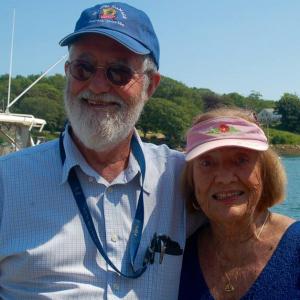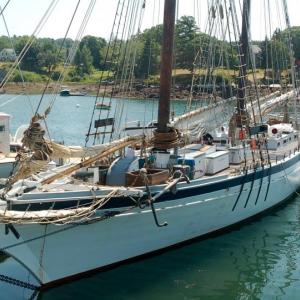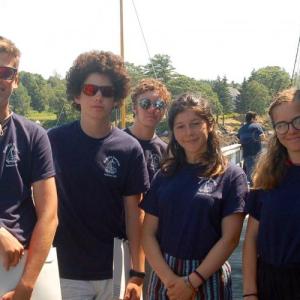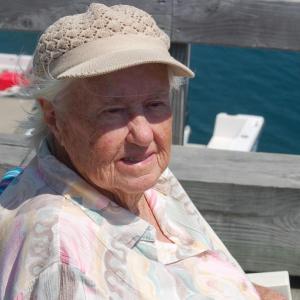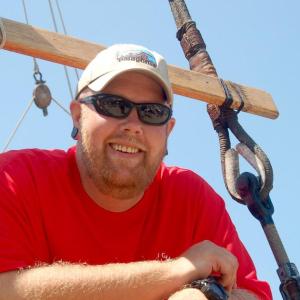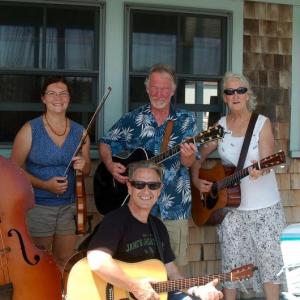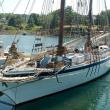Schooner Harvey Gamage sails home to South Bristol
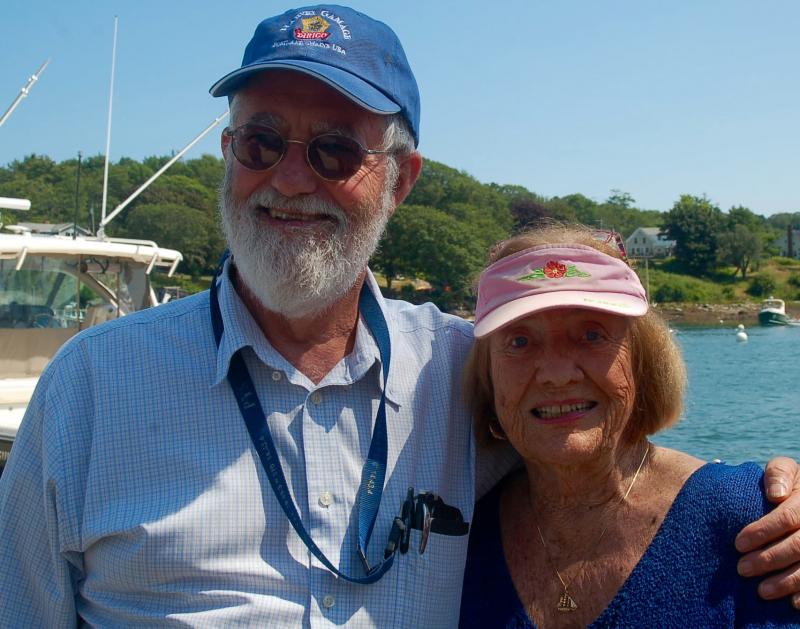 Current and former Harvey Gamage owners Phineas Sprague and Phyllis Johnson. ART MAYERS/Boothbay Register
Current and former Harvey Gamage owners Phineas Sprague and Phyllis Johnson. ART MAYERS/Boothbay Register
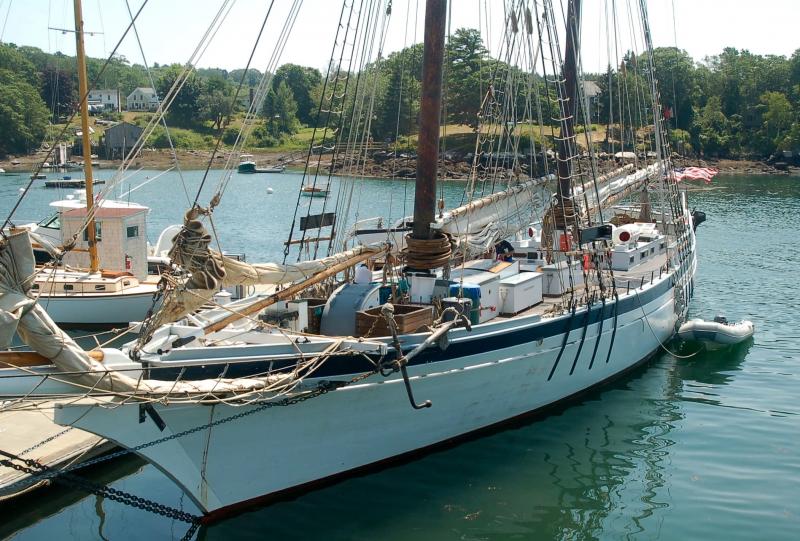 The schooner Harvey Gamage in South Bristol. ART MAYERS/Boothbay Register
The schooner Harvey Gamage in South Bristol. ART MAYERS/Boothbay Register
 Student crew Max Bickford, William Labbe, Colby Cummins,Ivy Whittaker and Leyli Johnson. ART MAYERS/Boothbay Register
Student crew Max Bickford, William Labbe, Colby Cummins,Ivy Whittaker and Leyli Johnson. ART MAYERS/Boothbay Register
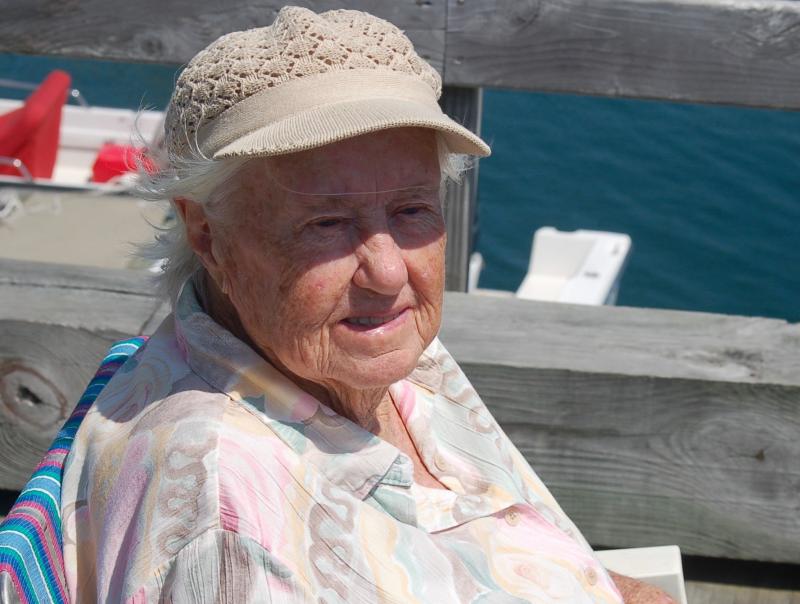 Kathy Norwood of South Bristol. ART MAYERS/Boothbay Register
Kathy Norwood of South Bristol. ART MAYERS/Boothbay Register
 First Mate Matt Norwood. ART MAYERS/Boothbay Register
First Mate Matt Norwood. ART MAYERS/Boothbay Register
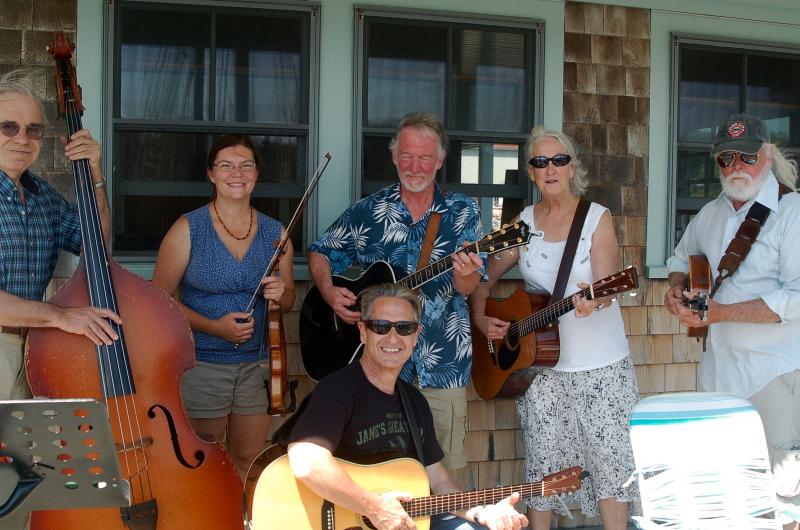 Rusty Hinges plays sea chanties. ART MAYERS/Boothbay Register
Rusty Hinges plays sea chanties. ART MAYERS/Boothbay Register
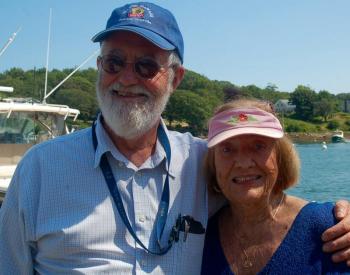 Current and former Harvey Gamage owners Phineas Sprague and Phyllis Johnson. ART MAYERS/Boothbay Register
Current and former Harvey Gamage owners Phineas Sprague and Phyllis Johnson. ART MAYERS/Boothbay Register
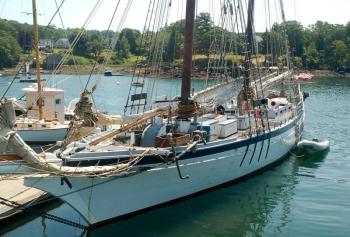 The schooner Harvey Gamage in South Bristol. ART MAYERS/Boothbay Register
The schooner Harvey Gamage in South Bristol. ART MAYERS/Boothbay Register
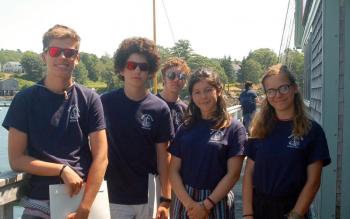 Student crew Max Bickford, William Labbe, Colby Cummins,Ivy Whittaker and Leyli Johnson. ART MAYERS/Boothbay Register
Student crew Max Bickford, William Labbe, Colby Cummins,Ivy Whittaker and Leyli Johnson. ART MAYERS/Boothbay Register
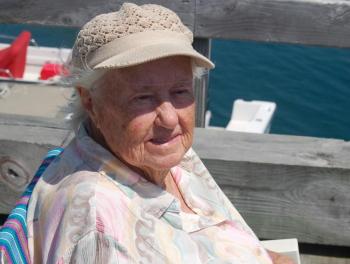 Kathy Norwood of South Bristol. ART MAYERS/Boothbay Register
Kathy Norwood of South Bristol. ART MAYERS/Boothbay Register
 First Mate Matt Norwood. ART MAYERS/Boothbay Register
First Mate Matt Norwood. ART MAYERS/Boothbay Register
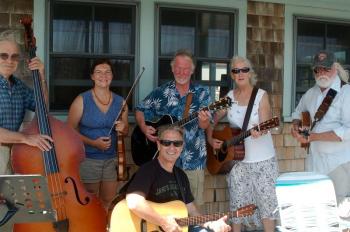 Rusty Hinges plays sea chanties. ART MAYERS/Boothbay Register
Rusty Hinges plays sea chanties. ART MAYERS/Boothbay Register
The schooner Harvey Gamage sailed into the Harvey Gamage Shipyard in South Bristol on Tuesday, Aug. 1 as part of a two-week student voyage to Penobscot Bay.
“It is really exciting to see the Harvey Gamage back home,” said Jeannie Butler, granddaughter of Harvey F. Gamage, boatyard founder. The two-masted, 130-foot schooner was named after him. Construction of the Harvey Gamage began in 1971. The schooner went into service in 1973.
“He always wanted to work on boats,”said Butler of her grandfather. Gamage died in 1976 a few years after the schooner was launched.
Attending the afternoon open house was Phyllis Johnson, an original co-owner of the Harvey Gamage. Johnson said she was on the maiden voyage. The boat sailed in the Caribbean, chartered out of St. Thomas V.I. for several winters. Johnson said the schooner took as many as 35 passengers on week-long cruises.
In the summers, the boat returned to Maine to be a learning experience for young sailors. It was sold in 1989, she said.
Today, the schooner fulfills the same teaching role under the umbrella of the nonprofit Ocean Passages. It is owned by Phineas Sprague of Cape Elizabeth.
“My dad helped build the boat,” said 87-year-old Kathy Norwood, who attended the event. Her grandson, Matt Norwood, is the current first mate. There are six permanent crew members including the cook but the 10 students aboard also serve as a working crew learning ropes, knots and navigational skills.
“They even stand watch,” said Mike Aaskov, the educational director for the cruise. Students for the current voyage range in age from 15 to 18, he said.
Following the last summer cruise of the season, the schooner will go in for repairs in Portland, getting ready for the fall and winter including an 89-day excursion to Cuba.
Ocean Passages President Greg Belanger said it is expensive to keep the Harvey Gamage seaworthy. The latest phase is the replacement of 4 to 5 of the boat’s planking at the Portland boatyard.
“She will be good for years to come,” said Belanger. He is looking forward to the schooner’s second winter trip to Cuba.
“In Cuba you are standing on Maine stones,” said Belanger of the use of Maine ballast stones taken to Cuba in colonial times when the return cargo was rum and molasses.
Belanger said that, sadly, Cuban youngsters are not learning sailing skills, due to Cuban government fears of emigration. “Cuba has turned its back to the sea,” he said. He hopes to get permission for young Cubans to join the American students for sails during their stay. He would like to see permission given for Cuban youth to sail back to Maine to learn how to set up the boat facilities the Cubans now lack.
Fishermen appear to be the only Cubans who know sea craft and they are mostly old men, said Belanger.
The cruise will take on board gap high school graduates, those delaying college matriculation, from around the country. Belanger said there are still opportunities for scholarships for Maine students, especially from the Midcoast area.
Event Date
Address
United States

